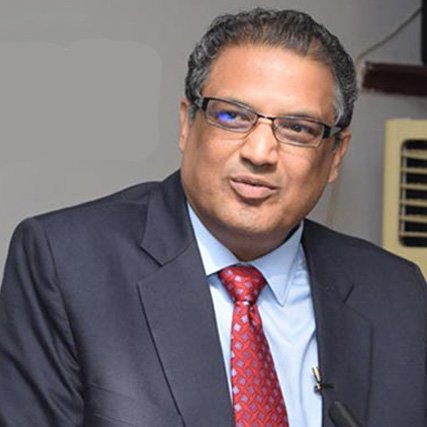According to the Punjabi dictionary, the term “encirclement” means a state of being caught in a dilemma. The country has been in a state of turmoil since the beginning of its history. It is apparently a democratic country, but the paradox is that it has not yet been decided whether civilian supremacy is to be established or whether the country will continue to run under the rule of generals, judges and civilian dictators. Two answers have been given to this most important question in the past. One is that civilian supremacy can only be achieved as a result of struggle or a major uprising. The second answer is found in history that civilian supremacy does not come as a result of an uprising because the powerful are so strong that they easily crush any such struggle. It is necessary for civilian supremacy to remain within the system and gradually increase its place with its efficiency and wisdom. If we look at today’s political system, it is clear that it is running according to the second question. The political elements in the government believe that over time, when they perform, their space will increase and they will be able to become an effective voice in the state. This optimism of the political elements is often discouraged, but currently the powerful and the political elements in the government have no choice but to walk together. The huge vote bank of the common political opponent, the PTI, forces them to walk together, and they are walking together, but there is pressure and pulling on both sides, and both remain deeply resentful of each other’s weaknesses.
From the current situation, we turn to the famous American historian Will Durant (1885-1981), who, together with his wife Ariel Durant, wrote The Story of Civilization in 11 volumes. This work created a sensation in the world and now it is impossible to understand the 5,000-year-old civilization and history of man without reading it. Later, Will Durant wrote a small book, The Lessons of History, summarizing the history written in his 11 volumes. The lessons that Durant learned from history were that since the world was created, two internal wars have been going on continuously in this world, these wars of freedom and equality. Unfortunately, where freedom is found, there is no economic equality, and even if a system of economic equality is established, then freedom disappears from there. According to Will Durant’s scale, the biggest war in the world is the war of freedom, and it is obvious that the problems of economic equality are present with it in the same way as they were from the first day.
After the formation of Pakistan, the founder Quaid-e-Azam Muhammad Ali Jinnah had given a clear message regarding the parliamentary democratic system and civilian supremacy, but the Indo-Pakistan war of 1948 changed the direction of the country. It was supposed to be a welfare democratic state, but for its own protection it became a security state. In the security state, civilian supremacy is always under threat because the state is so sensitive about its security that it fears and worries about civilians committing negligence in national security. Therefore, the security state retains maximum power and authority in order to keep the state as safe as possible. But as a result of this policy, the people become indifferent, the parliament does not get powers, the courts or institutions or the favorite dictatorial figures of both become so powerful that they disappoint the people with their political decisions.
The recent production orders of Aun Abbas Bappi and Senator Ijaz Chaudhry issued by Senate Chairman Yousaf Raza Gilani reveal the same contradictory spiral. The institutions’ point of view is that Senator Ijaz Chaudhry is one of the main characters of May 9, while in the opinion of the Senate Chairman, it is the Chairman’s parliamentary authority to call an arrested senator to the House. This contradiction shows the difference in thinking between the civil and military and the countless obstacles in the way of civilian supremacy. Those who say that many men and women arrested in the May 9 incident have been released, what difference will it make if an arrested and sick senator appears in the House? If he has to go to jail again after the House, then at least this much civilian supremacy should be accepted, even if it is for show. Will Durant’s beloved Azadi should be given a little chance.
The main point in the turmoil and politics that the country has been caught in for the past few years is civilian supremacy and the limits imposed on it. The country should learn from the world. Every country in the world is concerned about its own security. Even in democratic countries like the United States and Britain, defense institutions play a decisive role, but the lesson of history is that countries governed by civilian supremacy are more prosperous, freer, and more satisfied than security states. We should also gradually reduce and limit the role of our institutions. This is also necessary because the nuclear state and its powerful and authoritative institutions have the evil eye of foreigners. These institutions are diamonds for the state, and keeping the diamonds hidden ensures their safety. The state should not reveal these diamonds. They should also advise the state like the Pentagon or British institutions, but let the civilians make decisions because this approach has been successful in the world.
The role of politicians is important in untying the strong knots of political entanglement. If they continue to conduct the proceedings of the houses in a frivolous manner and do not allow reconciliation, then the dream of civilian supremacy will not be possible at all. If this country is to be run on a democratic track and brought out of the entanglements, we will have to open our hearts, develop flexibility, apologize for the mistakes of the past, and provide a solid guarantee of democratic freedoms in the future. Until politicians reach a reconciliation formula, neither will any democracy remain permanent here nor will the journey towards civilian supremacy begin. Isn’t it time that we all learn from our mistakes and move forward?
 Colors
Colors  View Books
View Books 



